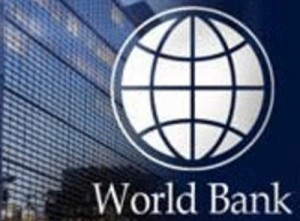Nigeria should be worried about debt servicing – W’Bank
 Nigeria should be worried about the percentage of its revenue that goes into servicing of debts rather than the size of the debts, the World Bank has said.
Nigeria should be worried about the percentage of its revenue that goes into servicing of debts rather than the size of the debts, the World Bank has said.
The World Bank Lead Economist for Nigeria, Mr. Khwima Nthara, said this in Washington, United States, while answering questions from journalists from several African countries through video conference to mark the release of a report on the continent’s economies entitled: ‘Africa Pulse’.
Nthara said Nigeria’s total debt profile was sustainable but added that the cost of servicing it, especially the domestic debt, was too high and out of sync with the country’s revenue profile.
He said, “Yes, debt has been on the increase, but Nigeria’s debt remains low. The debt stock has just increased from 12 per cent to 14 per cent of the Gross Domestic Product. The most important problem that Nigeria is facing is debt service. Nigeria has a large debt to revenue ratio, and largely most of the debt is domestic, which is crowding out the private sector.
“So, while Nigeria does not have a debt sustainability problem at the moment; indeed, there is an issue on how the debt is being financed. And that is why the Debt Management Office is putting in place now strategies to increase external financing.”
In an exclusive story, The PUNCH had reported that the cost of servicing the Federal Government’s domestic debt hit the N1tn mark for the first time in 2015.
According to the report, the Federal Government spent N1.02tn to service its domestic debts in 2015. This comprised of N25bn spent on repayment of principal and N993.13bn spent on interest payment within the year.
As of the end of December 2015, Nigeria’s total public debt stock stood at N12.6tn compared to N11.25tn in 2014. The difference represents an increase of 12 per cent (or N1.37tn) within the one-year period.
External debt accounted for N2.11tn or 16.75 per cent, while domestic debt accounted for N10.49tn or 83.25 per cent, with the Federal Government owing domestic creditors N8.54tn.
The DMO attributed the increasing cost of debt servicing to an equally increasing domestic debt profile and rising interest rate.
Answering question on the proposal to sell some national assets in order to solve the financial challenges of the Federal Government, the World Bank economist said it was difficult to take a stand until a detailed plan was in place.
“Sale of assets is an issue that is being discussed currently in Nigeria at the moment. It raises important issues, including for example, what form of sale of assets is being contemplated. It is very difficult to take a position without the details, because the authorities have made it clear that they are still considering it,” Nthara said.







